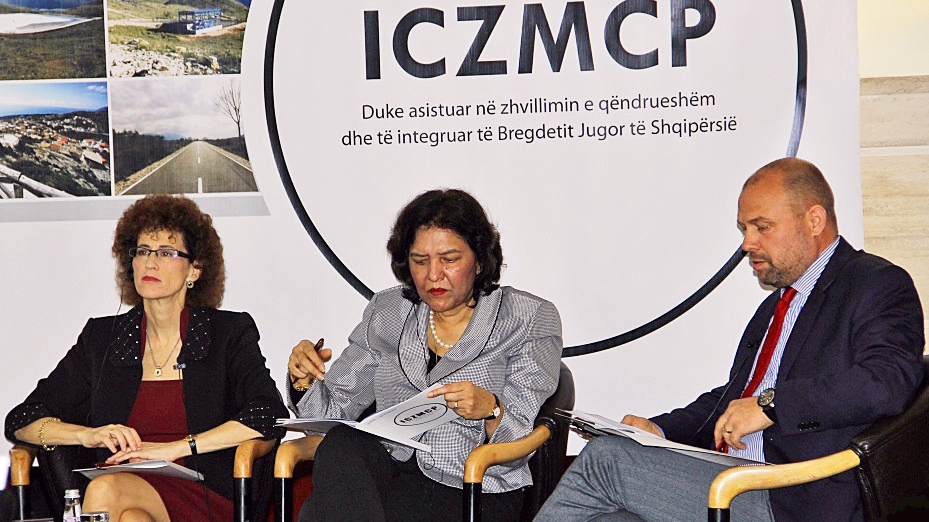I would like to thank our partners from EU Delegation, the Governments of Austria, Netherlands and Japan for their continuous engagement and support. Our big thanks to all! I also acknowledge my own team’s passion for results and intensive support during implementation. It is due to the collective effort of so many people that we are assembled here today to take stock and discuss results.
Let me now touch upon some of the results. I am sure that other speakers in this workshop will talk about these in more details. It is not often when a project meets all its indicators when it closes. For instance, the Gateway of Saranda – passenger terminal was built and is in operation. Large cruse boats have been docking since August 2014. Porto Romano cleanup has been completed reducing the health hazards for the entire community of 5000 people. A regional landfill in Bajkaj, meeting EU standards will allow for sanitary disposal of waste in the next decades, thus potentially solving a long standing problem of the southern coast of Albania.
The Coastal Village Community Development Program provided water supply infrastructure, access roads for the population of 13 villages. In addition, 15 roads and village square rehabilitation were completed, 9 water supply projects provided water to nearly 1200 households and one sewage services for Himara. Saranda citizens and Navarica village benefited from increased water supply and improved sewage network. The establishment and increased protection of the Butrint national park and support to local communities in the park area contributed to the protection of natural endowment of the area which also supports communities’ livelihoods. The outcome of the infrastructure investments has significant development impact on the coastal areas which was confirmed by the beneficiary survey which will be discussed later today. We hope that the continuous engagement with local communities will be maintained to protect local economic and cultural assets.
The World Bank Group is currently preparing its next five year new Country Strategy for Albania which will support the country’s goal of accomplishing sustainable and inclusive economic growth. The government’s priorities to accomplish this goal include sustainable and inclusive land and natural resource management. This project has not only demonstrated concrete results but has established the building blocks for future coastal regeneration and sustainable tourism development.
Going forward, tourism can be a leading growth generating sector for Albania’s economy and can also create new jobs. There is no reason why this vision cannot be accomplished – the country has abundant and beautiful natural resources, coupled with a rich cultural heritage. However, it is critical for the development of tourism: a) to proceed in an integrated and sustainable manner, b) to move with the participation and ownership of local communities, and c) to ensure that infrastructure and associated developments do not undermine natural endowments. You have already seen how the beautiful Saranda coastline has been affected by uncontrolled development. Integrated management of coastal areas and promotion of sustainable tourism, if done right -- and by learning lessons from Albania’s own experience and other countries’ experiences – can protect Albania’s natural endowments, yield economic benefits for the local communities, create jobs and contribute to the country’s economic growth. A win-win proposition!
Today’s event is timely to take stock of project results and its impact on the coastal area and on people’s lives. It is also an excellent opportunity to exchange ideas on future engagement for the protection and regeneration of the coastal area – Albania’s beautiful natural asset -- which can serve as the stepping stone for sustainable tourism. We look forward to our partnership in this area.
Thank you.

